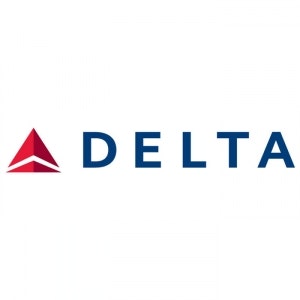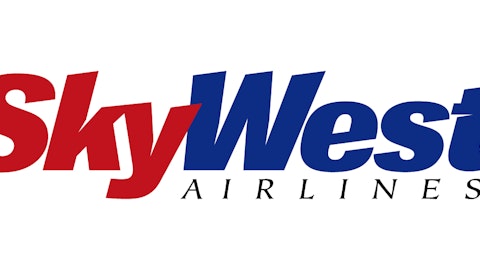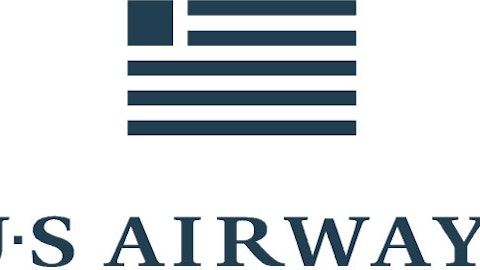With the air transport industry in transition and profitability improving, it is worth taking a look at the reasons behind this trend. Airlines take two forms: major international carriers, and intra-domestic carriers with reduced-cost structures.
Fleet renewal and reallocation
When Delta Air Lines, Inc. (NYSE:DAL) merged with Northwest in 2008, it embarked upon a period of improved financial results, thanks largely to the combination of the two carriers’ route networks.
By replacing its older aircraft and redeploying its fleet to more profitable destinations, the company attracted more passengers, and improved its operating margins, revenue, and earnings per share.Other metrics, including its load factor (occupancy rates) and operating margins, also improved dramatically.
The airline, which had been operating in the red for much of the previous decade, was now much more profitable.
Delta Air Lines, Inc. (NYSE:DAL) paved the way for other mergers, namely United/Continental and Southwest/AirTran. Given the benefits, airlines are likely to adopt Delta Air Lines, Inc. (NYSE:DAL)’s strategies and become more consistently profitable. For proof, look to US Airways’ pending merger with American Airlines. If it follows Delta Air Lines, Inc. (NYSE:DAL)’s example, American may bounce back from bankruptcy with a more efficient system that will support profitability.
Situated in growing markets
A number of smaller airlines have been performing rather well providing service between leisure destinations solely within the U.S. The first of these, and still a strong entity, was Southwest Airlines Co. (NYSE:LUV).
With the acquisition of AirTran in 2011, it has gained a solid presence in Atlanta, as well as Baltimore, Milwaukee, and a new business-class service. The acquisition expanded its major market presence, allowing Southwest Airlines Co. (NYSE:LUV) to add numerous routes and city pairings.
Thus, as the integration of AirTran is completed, Southwest Airlines Co. (NYSE:LUV) should achieve benefits such as revenue from newly added routes and cost cuts stemming from increased scale. The company’s cost structure is already allowing for profit margins of 2.20% over the trailing 12 months, well above the industry average of 0.02%. .
Southwest Airlines Co. (NYSE:LUV) shares offer capital appreciation potential, based on the company’s merger synergies and other benefits from expansion. The company is probably the only major airline to pay a dividend, with a 1.3% yield.
Capacity increases and growth
Numerous leisure carriers are growing their route networks at significant rates, and simply gaining from the rise in air traffic.
The most prominent of these carriers is JetBlue Airways Corporation (NASDAQ:JBLU). The New York-based airline has for years been capturing market share from legacy airlines on intra-U.S. flights. More recently, it has expanded to become the largest airline in Boston, while also flying more than 25% of its capacity to Caribbean destinations, primarily Puerto Rico.
Its sales growth rates, 9.97% on average over the past five years, and gross margins, 46.30% for the trailing 12 months, are regularly above that of the broader industry, (7.84% and 39.00% respectively). This indicates that JetBlue Airways Corporation (NASDAQ:JBLU) has expanded rapidly, while still maintaining a strong level of profitability. Its point-to-point route network inherently carries better margins than hub-and-spoke model airlines, because of the lower-cost structure.
JetBlue should maintain these advantages as it boosts its level of business flying in Boston, thus lifting the average airfare, and helping revenue per available seat mile, or RASM, to remain strong. This belief is founded on its strategy of focusing on higher-margined flights and geographical markets.
I like JetBlue shares for their three to five-year price appreciation potential, as the company plans to expand. This year alone, it is entering markets such as Charleston, Albuquerque, Philadelphia, and Medellin, Colombia.
The largest domestic airline, United Continental Holdings Inc (NYSE:UAL), is aiming to be one of the most efficient in terms of filling aircraft and keeping its cost per available seat mile, or CASM, at profitable levels.
The carrier is, in fact, achieving increased earnings this year, despite lower capacity and passenger enplanements. This has been partly a result of increased load factors (fuller aircraft), as well as reduced fuel costs. Up until earlier this year, it did not make major increases to its fleet, and a greater overall numbers of air travelers has helped to drive up its load factors.
United Continental Holdings Inc (NYSE:UAL), earlier this year, chose to improve the productivity of its aircraft fleet when it ordered new, more fuel-efficient planes. The integration of Continental, an acquisition made in 2010, is near completion, and seems to be resulting in better productivity.
As such, the carrier is on pace for a near doubling of EPS this year, should conditions (economy and jet fuel prices) hold stable.
United Continental’s stock is worth a look for long-term upside. For the reasons stated, its volatility had been reduced substantially, as seen by its beta of 0.78 as compared against the industry average of 1.18.
Where to invest
The most enticing investment is United Continental, trading at a forward P/E of 6.0. The stock of the other major international carrier, Delta Air Lines, Inc. (NYSE:DAL), is also one investors ought to consider for their portfolios. See “Your Guide to International Airline Expansion” for more on why these legacy carriers hold promise.
In terms of the other two, Southwest Airlines Co. (NYSE:LUV) and JetBlue, the growing leisure air travel market ought to work to their advantage. More consumers are choosing point-to-point short-haul flights, and these are two of the largest providers of that service.
The article Why to Invest in Airline Stocks originally appeared on Fool.com and is written by Damon Churchwell.
Damon Churchwell has no position in any stocks mentioned. The Motley Fool recommends Southwest Airlines.
Copyright © 1995 – 2013 The Motley Fool, LLC. All rights reserved. The Motley Fool has a disclosure policy.






